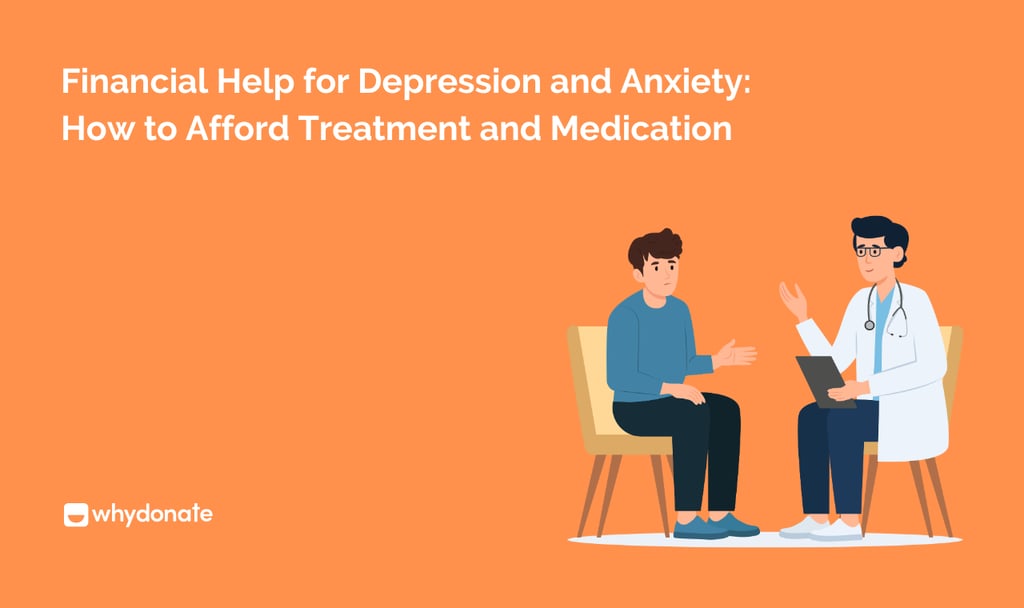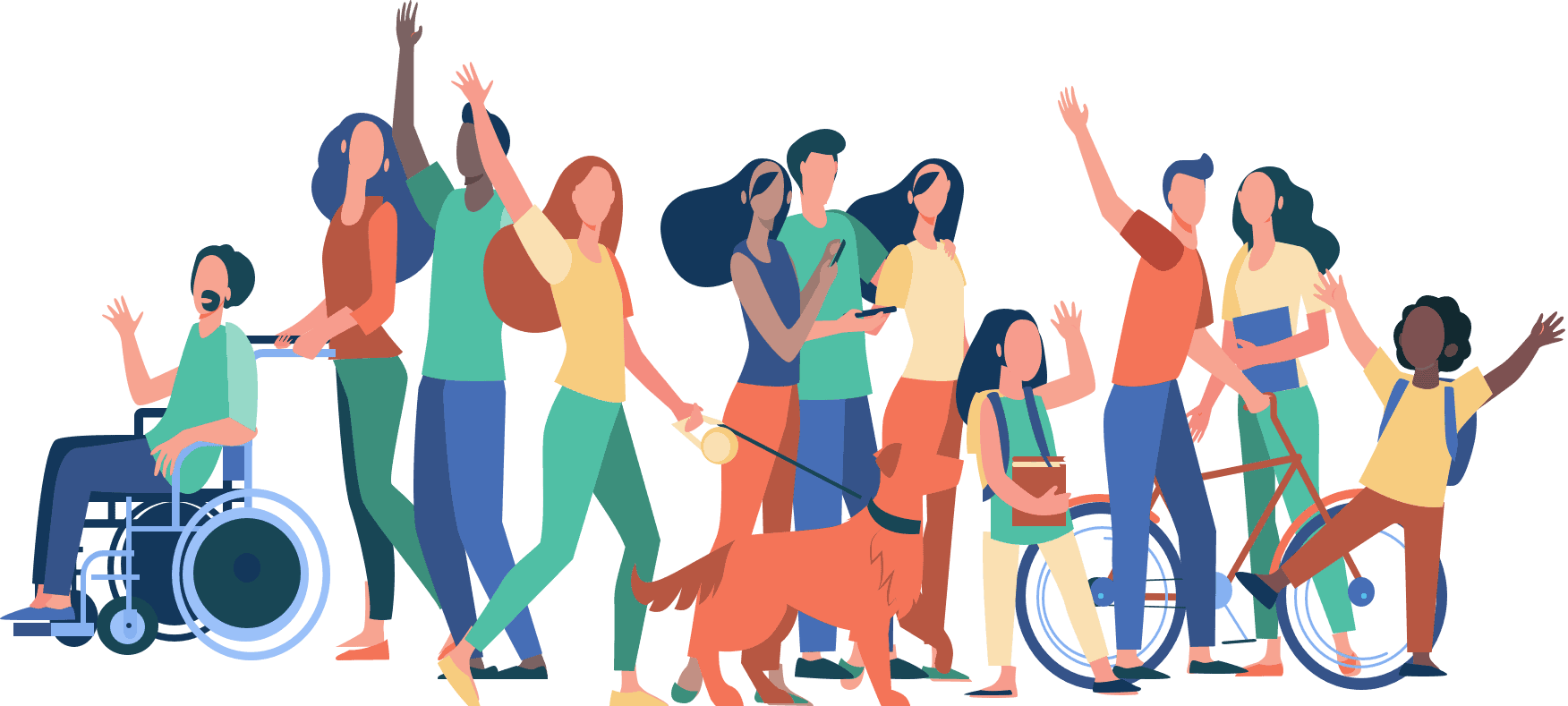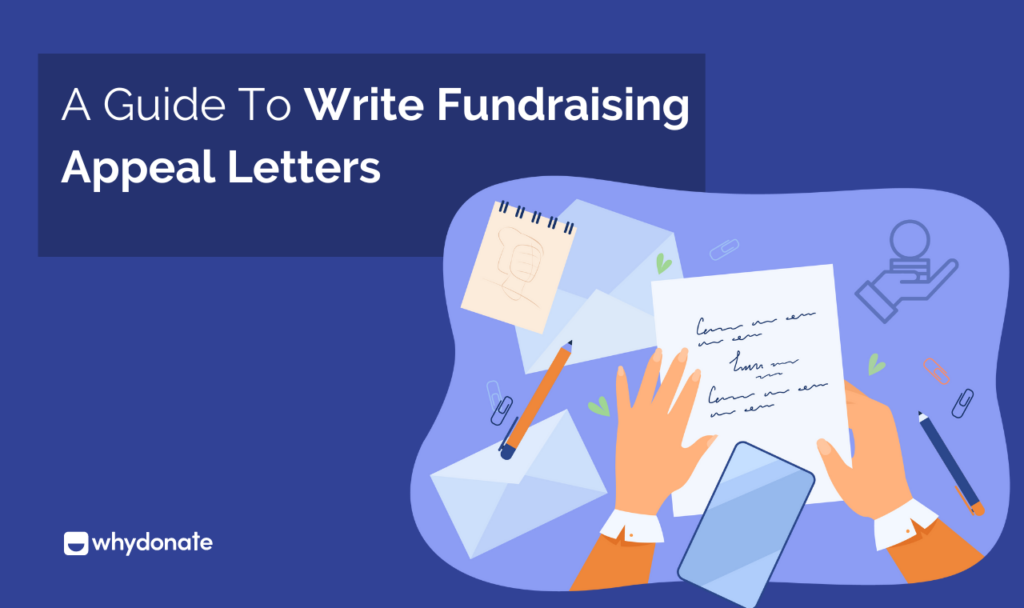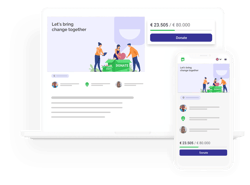Among the most common psychological challenges faced on a global scale are mental health conditions such as depression and anxiety. On any given day, millions of people go through the throes of deep sorrow, worry, tiredness, brain fog, or attacks of panic. And there is the added factor of cost, almost as if asking for financial help for depression and anxiety can feel like an added burden.
As conversations around mental health have opened up, treatment has become more accessible, but not affordable. Therapy for depression, psychiatry sessions, and medication can strip you of your whole life savings, especially if you have no insurance or are between jobs. And, there still remains a stigma attached to seeking support to crowdfund mental health treatment, putting pressure on those who might need it to stay silent.
Here, mental health fundraising makes your life easier. With the right platform, your fundraiser for anxiety treatments can touch heights. So, don’t let financial constraints come in the way of your medical treatment. This guide is here to break that cycle. We’re diving into:
- How Much Does Depression Treatment Cost
- Medication Options and How Much They’ll Cost You
- Where to Find Financial Help for Depression and Anxiety
- How to Use Fundraising for Therapy to Support Mental Health Care
- FAQs and Actionable Tips
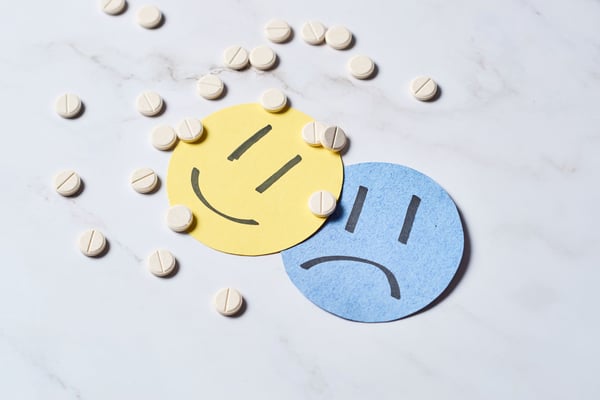
Table of Contents
Understanding the Cost of Treating Depression and Anxiety
When we talk about treatment, we’re talking about an entire ecosystem, from therapists and psychiatrists to medications, lifestyle support, and sometimes, hospitalization. And unfortunately, costs can pile up fast.
1. Therapy and Counseling Costs
Therapy is a cornerstone of mental health care. Depending on your location, the therapist’s experience, and insurance status:
- Without Insurance: $100 to $250 per 50-minute session
- With Insurance: Copays may range from $10 to $50 per visit
- Sliding Scale Providers: $30 to $80 (based on your income and ability to pay)
Modalities like CBT, DBT, and psychodynamic therapy are generally offered for depression and anxiety, and session length and frequency vary from one case to another. A typical regimen of weekly therapy for six months, or 24 sessions, can easily reach $2,400-$6,000 without insurance. That sort of cash is a major hurdle for many.
2. Psychiatrist Visits
Psychiatrists can prescribe medications and manage your mental health care from a medical perspective.
- Initial Evaluation: $250 to $500
- Follow-Ups: $100 to $300
- With Insurance: $20 to $60 co-pay, depending on your plan
Unlike a therapist, a psychiatrist typically doesn’t provide talk therapy, so many people need both.
3. Medication
Most people diagnosed with moderate to severe depression or anxiety are prescribed medication, either temporarily or long-term.
Common Costs:
- SSRIs (Selective Serotonin Reuptake Inhibitors) like Zoloft or Prozac: $10–$30 (generic), $100–$300 (brand) per month
- SNRIs (serotonin-norepinephrine reuptake inhibitors) like Effexor: $15–$40 (generic), $150–$400 (brand)
- Benzodiazepines (short-term use): $20–$100/month
- Tricyclic Antidepressants: Usually cheaper, but often have more side effects
Important Note: Medication adherence matters. Stopping abruptly or skipping doses can worsen symptoms. So refills, dosage adjustments, and follow-ups are additional ongoing costs to factor in.
4. Hospitalization and Emergency Care
While rare, some people require inpatient treatment during severe depressive or panic episodes. These can cost:
- $1,000 to $2,500 per day for inpatient psychiatric care
- $10,000+ per week for residential treatment centers
With insurance, costs vary widely; some plans cover 100%, others cover partial days or require pre-approval.
5. Alternative/Complementary Therapies
(This is not medical advice. Please consult a qualified healthcare professional for personal medical or mental health concerns.)
These are increasingly used as adjunct treatments and offer meaningful support, but often come with high out-of-pocket costs:
- TMS (Transcranial Magnetic Stimulation): $300–$400/session (20–30 sessions common)
- ECT (Electroconvulsive Therapy): $2,500+ per session (with anesthesia and monitoring)
- Acupuncture, Meditation Training, MBSR Programs: $50–$200/session
Insurance may cover ECT and TMS with proper documentation and pre-authorization, but holistic therapies are rarely covered.

Where to Find Financial Help for Depression and Anxiety
If you are uninsured, underinsured, or confronted by a high deductible, it may feel like financial help for depression and anxiety is far from reach. In a way, the good thing is that cheap and accessible options do exist; the problem you face is in knowing where to begin.
1. Insurance: Private, Medicaid, and Medicare
Under the Law Mental Health Parity and Addiction Equity Act (MHPAEA), insurers must impose mental health and substance use disorder benefits no more restrictive than physical health benefits. Yet, accessing them is still far from consistent.
Many of the coverage plans will have restricted therapist networks or only pay for a handful of visits. If you do have insurance, read up on your benefits and check out coverage for therapy, psychiatry, and medication, along with anything you may have to pay for yourself in co-pays or deductibles.
2. Government Programs
Both Medicaid and Medicare provide major mental health coverage to those who qualify. Under Medicaid, therapy and prescription drugs are generally covered for low-income recipients, whereas Medicare is more oriented toward providing such benefits to the elderly and disabled.
The Substance Abuse and Mental Health Services Administration (SAMHSA) offers a treatment locator and may assist in finding other federal programs. Consider these sources to launch your search.
3. Community Mental Health Centers (CMHCs)
The community mental health agency is a locality where cheaper or free mental health services can be provided to the public. The operations range from walk-in therapy to psychiatry, crisis interventions, and long-term treatment.
Many CMHCs operate on government funds, making them an attractive option for people with little or no income or insurance. The urge in these centers is to make things as accessible as possible, working on a sliding scale that might fit into your budget.
4. Sliding Scale Clinics and Therapists
Sliding scale treatment is where the payment is set by what you can afford. It is the basis for most state passes, through grants, and allows therapy to become really affordable for you. They will ask to see documentation of your income and the size of the household from which your rates will be determined.
It is not their free service, but it can really help reduce costs, especially for students or lower-income earners. Services like Open Path Collective and TherapyDen can help you find these providers.
5. Digital Mental Health Platforms and Apps
For others, online therapy apps such as BetterHelp or Talkspace could offer a cheaper choice than those in an actual office. Sanvello, Insight Timer, and MoodTools assist with self-guided treatment at minimal or no cost. Although probably not the best choice for cases of utmost severity, they offer backup support and a coping mechanism on a day-to-day basis.
6. Discount Medication Programs
If medications are part of your treatment, think about a discount program that might help, such as GoodRx, BlinkHealth, or SingleCare. These sites track prices at pharmacies, issuing coupons that may reduce the price for the buyer.
Also, Patient Assistance Programs (PAPs) run by pharmaceutical companies or NeedyMeds.org can pay for some patients’ medications or help low-income individuals obtain their meds for free.
7. Employer Assistance Programs (EAPs)
Most companies in the United States offer EAPs that provide a few sessions of free therapy or mental health support, seldom, if ever, used by the employees. Check with your HR department about what is available for you. Some programs offer 3-6 free sessions of therapy per year, which can be a good start, especially if finances or being hesitant are weighing you down.
8. Clinical Trials
Participating in a clinical trial gives access to free therapies at the experimental stage, including medicines and therapeutic interventions. Trials are most often run by hospitals or universities and would usually involve an eligibility screening. This option is not for everyone, and yet, it may be great if you’re open to the research setting and want to investigate treatments not yet on the market.

Fundraising for Mental Healthcare Costs – Free of Cost
Whatever financial gap insurance, government programs, or community resources could not fill, fundraising for therapy has always presented itself as a practical and empowering solution, especially when treatment costs such as long-term therapy or medication are not fully covered under insurance, or when copays and deductibles run exorbitantly high. Personal fundraising can bear the brunt of the expense, making sure the patient gets the needed care in a timely manner without undue additional financial burden.
Crowdfunding becomes more than just a method of monetary transfers. It is a community force. When the money is needed for therapy sessions or ongoing personal therapy, buying prescription medication, or even transportation to clinics, one can set up a fundraiser for either themselves or their loved one for medical crowdfunding for anxiety. There is no tedious application process, and one of the best fundraising platforms for mental health expenses, WhyDonate, facilitates setting up campaigns in just a few minutes.
With no long waiting periods, fundraising through WhyDonate offers a quick and accessible way to crowdfund mental health treatment, not just for yourself, but also for friends, family, or a loved one. As more campaigns go live, awareness around mental health naturally grows, helping break the stigma.
By leveraging the power of community to heal and support each other, WhyDonate acts as more than just a platform; it becomes a movement. However, it’s crucial to clearly communicate how the funds will be used, as transparency builds trust with donors and ensures long-term support.
Support Mental Health | Launch Your Fundraiser Today!
Final Thoughts!
Mental health care shouldn’t be a luxury, and yet, for many, it still feels like one. But the tide is turning. More resources exist than ever before, and with the help of community, compassion, and courage, getting the care you need is possible.
Whether you’re just starting your mental health journey or hitting a financial roadblock midway, don’t give up. Help is out there. And you deserve it.
Helpful Links:
- WhyDonate – Start a Fundraiser
- SAMHSA Treatment Locator
- GoodRx Medication Discounts
- Open Path Collective for Affordable Therapy
FAQ (Frequently Asked Questions)
What financial help can you get with depression?
You can access financial help for depression and anxiety through insurance coverage, government programs like Medicaid, nonprofit organizations, sliding scale clinics, and employer assistance programs. If costs are still too high, you can also start a fundraiser on WhyDonate to cover therapy, medication, or other essential mental health support.
How to get help for depression with no money?
Free or low-cost options include community mental health centers, digital therapy apps, university counseling services, and government programs like SAMHSA. If these aren’t enough, consider raising funds through WhyDonate, where you can easily set up a campaign and get support from friends, family, and the broader community.
Can you claim benefits for anxiety and depression?
Yes, in many countries, individuals with clinically diagnosed anxiety or depression may qualify for disability benefits or mental health grants. Eligibility often depends on how significantly symptoms affect your daily life. Reach out to a social worker or local mental health agency to help you apply and navigate the process.
Is treatment for depression free?
Treatment isn’t always free, but it can be low-cost or subsidized. Government clinics, nonprofits, and university mental health centers often provide free therapy or psychiatric consultations. Apps with self-guided therapy are also free. Some prescription programs and trials offer medications at no cost based on income or eligibility.
Can I get money for mental health?
You can access funding through disability benefits, nonprofit grants, employer assistance, or crowdfunding platforms like WhyDonate. Whether you’re covering therapy, medication, or a mental health crisis, fundraising for therapy can help ease financial stress and ensure you get the care you need without delays or debt.
